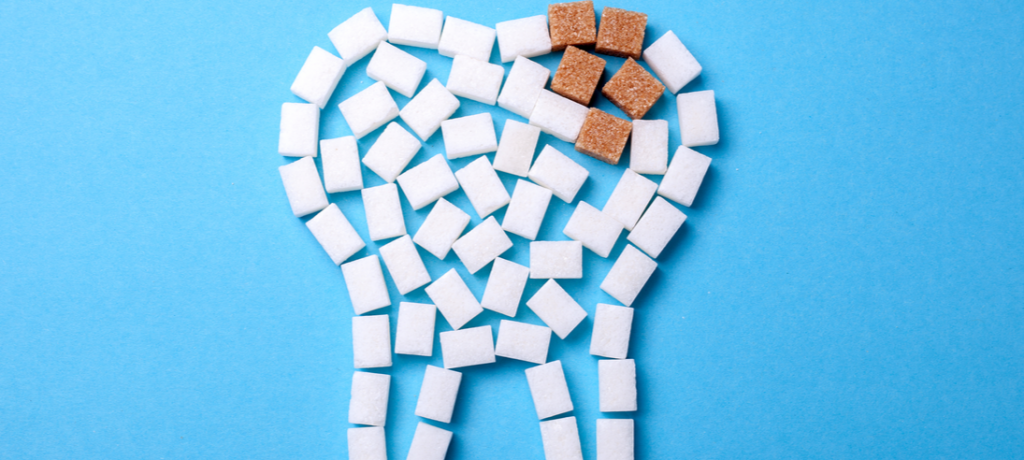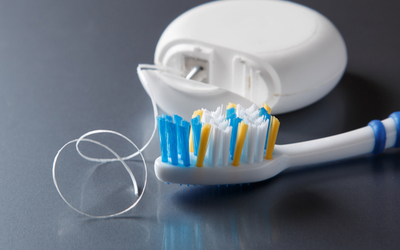Resource Library
Start Reading

While you are probably aware that sugar has an impact on your teeth, you may not know that sugar itself isn’t the culprit. The events following sugar’s introduction into your mouth are responsible for how sugar affects teeth.
This article explains the effect of sugar on your teeth and the steps you can take to avoid tooth decay. If you have kids, check out this article from the ADA about how to reduce sugary snacking!
Sugar in itself isn’t what destroys your teeth, but it’s a magnet for the bacteria that do.
 Two destructive bacteria live in our mouths: Streptococcus mutans and Streptococcus sorbrinus. Any time you eat something with sugar, the s. mutans bacteria jumps into action to break down the sugar. During this process, an acid is secreted. That acid dissolves tooth enamel, creating little wedges in the teeth where more bacteria can reside.
Two destructive bacteria live in our mouths: Streptococcus mutans and Streptococcus sorbrinus. Any time you eat something with sugar, the s. mutans bacteria jumps into action to break down the sugar. During this process, an acid is secreted. That acid dissolves tooth enamel, creating little wedges in the teeth where more bacteria can reside.
We see the activity of these bacteria in the dental plaque that forms on the surface of the teeth. If it’s not removed by brushing and flossing, that plaque can harden into tartar in just a day. Plaque is a sticky, colorless film that forms on the surface of your teeth.
When plaque is not washed out by saliva, brushing, and flossing, the environment becomes more acidic, causing tooth decay. Research has found that about 92% of adults in the United States have experienced tooth decay at some point in their lives. While sugar itself isn’t the culprit of tooth decay, limiting the amount of sugar in our diets is an easy way to keep the bacteria that cause decay away.
We have a few tips up our sleeve to help you reduce the harmful ways in which sugar affects your teeth. Before we get into those, it’s important to be aware of the foods that have a high sugar content. It probably goes without saying that soda and candy consumption should be minimized to decrease your teeth’s exposure to the damaging effects of sugar. But what about the invisible culprits, those foods that you maybe didn’t know had a lot of sugar? Here’s a list of 5 foods with a higher sugar content than you might expect:
If you have a sweet tooth and just must treat yourself, there are a few easy ways you can alleviate the harm sugar can do to your teeth:
If it’s been awhile since you’ve visited the dentist, then we invite you to take this opportunity to get checked out. Dental cleanings are instrumental in keeping the bacteria at bay. No dental visit can substitute for the important habit of daily brushing and flossing, but it can set you on the right track by removing the tartar you can’t clean off with your toothbrush! Cleanings are also important occasions to track your oral health and catch any incipient problems before they become serious.
Trust the experience and high quality care from the dentists and staff at Penn Dental Family Practice. To make an appointment, please call our office at 215-898-7337.